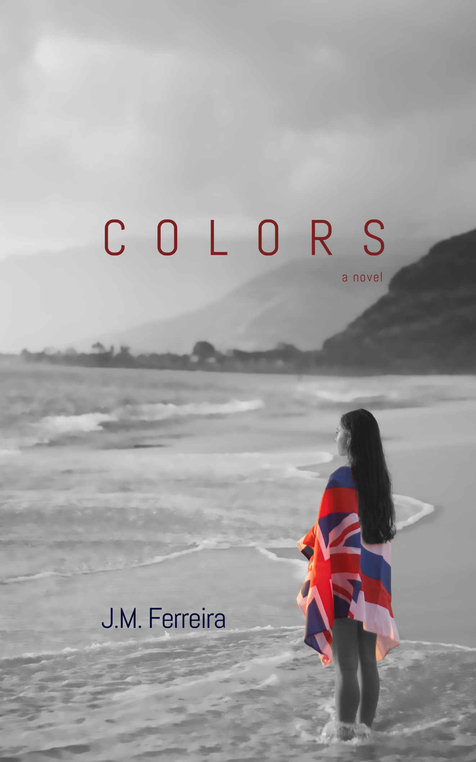
Colors, J.M. Ferreira’s stunning literary debut, paints a startling picture of race and sexual discrimination in a not-so-distant future Hawaii.
The year is 2026. Thirty-six-year-old Pualani “Pua” Kahahawai is an educated native Hawaiian living in the shadow of her older brother, Kalani, the “jailbird sovereignty messiah of the Kahahawai clan,” now doing 30 years in state prison. Having lived the first half of her life in a tent on the beach, Pua now lives in an old plantation-style house with her parents, her aunty and her aunty’s son and wife, and their son. Her father is confined to a wheelchair, her mother works as a grocery store clerk, her aunty as a janitor and her cousins in retail. With their combined earnings, they barely make enough to put food on the table.
Pua is the highest earner in the family, contributing to the mortgage and the utilities. She’s tired of her family’s constant judging and criticisms and just wants to be left alone to live her life, away from the anger, sadness, and frustrations at home. She is a corporate financial services consultant and has recently been promoted to Senior Auditor at one of the largest of the old financial houses on the island. Their biggest and most important longstanding client is Kenji Kodama, patriarch of Kodama International, a multibillion-dollar conglomerate.
With her mentor and former Senior Auditor having recently retired, Pua has been handed the prestigious reigns to Kodama’s financials but in her first meeting with Kodama’s patriarch, he rudely dismisses her because she’s a woman and because she isn’t Japanese. With her firm suddenly in jeopardy of losing its most important and valuable client, Pua knows she must take matters into her own hands or risk the career that will liberate her from her family once and for all.
For many of us, Hawaii is a beautiful tropical paradise that’s a top tourist destination. Ferreira, a lifelong Hawaiian, shows us a vividly different perspective, one of a tiny kingdom stolen from its natives in service of military bases, luxury resorts, and missile defense – a place where race and sexual discrimination are still powerful forces of contention. Eloquently written, Colors invokes raw emotional conflict as we’re forced to consider the implications of race and sexual discrimination, both on a societal level and on a personal one.
Though these heady and vital topics might suggest a novel that is focused too heavily on social issues and a family’s despair, Ferreira’s prose is poetic and even imbued with humor, the sign of a fine literary novelist. It is the author’s empathy that shines most brightly – again, not veering towards maudlin sentimentality, but painting a realistic and moving portrait of each character and the oftentimes contradictory state of Hawaii.
Ferreira’s protagonist is a study in contradictions, which makes her particularly engaging. On the one hand, she’s educated and intelligent, yet on the other, she downplays her promotion to Senior Auditor, refusing the perks her new role provides because she doesn’t believe she deserves it. Smothered by the judgement and criticism of her family, Pua wants to get away from them, yet feels an obligation to stay. She’s a young woman who struggles to make her mark in a world divided by distrust, anger, and prejudice. All of these facets make the book a page-turner both for the power of Ferreira’s prose, and where each character is taken.
All told, Colors is an engrossing story that is sure to resonate with readers across all genres, as it touches on issues that affect all of us.
Book Links
STAR RATING
Design
Content
Editing
Get an Editorial Review | Get Amazon Sales & Reviews | Get Edited | Publish Your Book | Enter the SPR Book Awards | Other Marketing Services























Leave A Comment